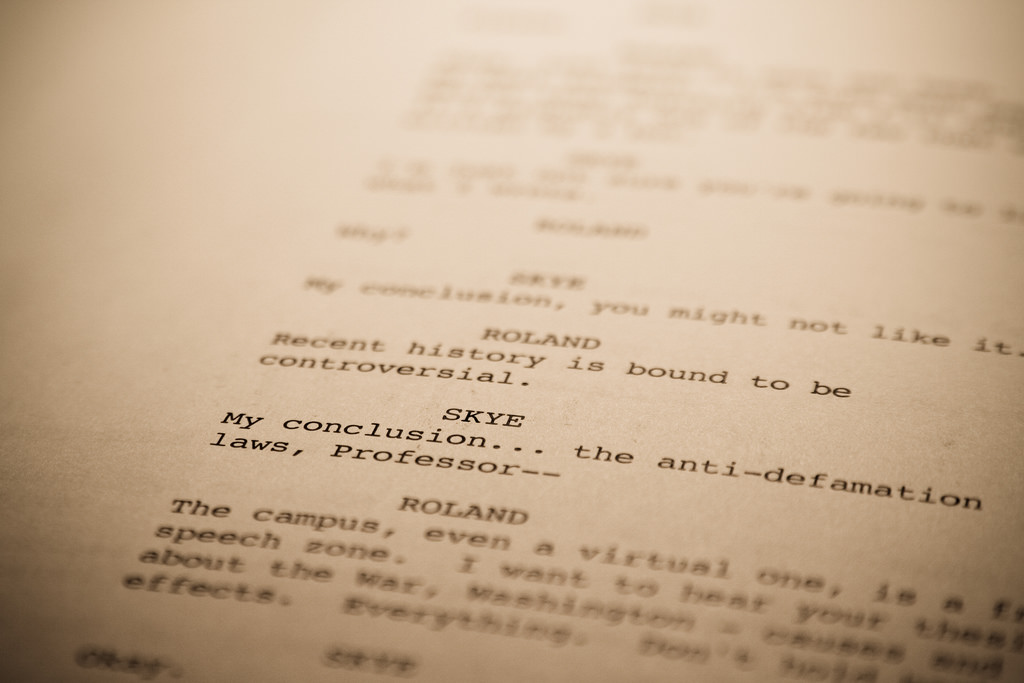Happy Hump Day, everyone. I hope your Valentines Day was joyful and fun . Getting back to reality, today we’re exploring three quick ways on how to field horrific notes on your scripts or feature films, without jumping off a bridge, or burning a bridge with the person who gave you the notes.

In today’s cinematic world of fragile egos and harsh opinions, the only thing harder than listening to insensitive professionals bash your life’s work, is to actually listen to their suggestions. Since filmmakers have been known to fancy themselves auteurs, the mere thought of altering their vision to enhance the commercial viability of their project turns their stomach. However, ignoring good notes that could turn an edit here and a rewrite there into a distribution deal here and a film festival award there, will turn far more than just your stomach; it’ll saddle you with an unsellable mountain of celluloid that will sharply reverse any forward progress you may have earned in your career.
Thus, here are three tips on how to accept the right advice.

Know Your Project’s Endgame Before You Field Notes
Having a realistic expectation of where your project is headed is key to positioning it for success. Is your project a super low-budget cult classic with no stars, or is it a star-driven, Sundance darling that may win more awards then sell tickets at the box office? While both strategies can do wonders for your career, you should have clear idea as to which path you’re focused on.
Once you figure out what your endgame is, you can start to focus on only the notes and opinions that directly pertain to it. This will help save you a colossal amount of time, because you won’t clutter your mind with 3,168 or so opinions that may not pertain to the current focus of your project.
No Personal Connection To The One Considering Your Work
While it’s comforting to have your family and friends praise your project, their opinions are useless. They have to interact with you on a daily basis, so they’ll be careful about their criticism. Billy Joel said it best in his song Honesty: “Honesty, is such a lonely word, everyone is so untrue.” Remember, human nature doesn’t change; it merely evolves. Thus, the solution is to have your work reviewed by respected, professional people who do not have a personal relationship with you. While their notes may be brutal, their praise will be honored and endorsed by all major entities in town.

Beware Of Including Coverage With Your Script Submission
Regardless of how good the coverage, including it with your screenplay will almost guarantee nobody will read your script. Reading five pages is a lot easier than reading 105 pages, so if you give your reader the opportunity to do so, he or she will certainly exercise that option. Furthermore, if you use a high-priced script doctor, some places may question the authenticity of the coverage, because they know you paid a very pretty penny to get it.
Okay, that’s (almost) all I have for you today. Here’s a link to a short video about key screenwriting techniques used in “Gone Girl.”
By the way, should you be as so kind to lend me your ears, please check out the iTunes link to my podcast, Limping on Cloud 9. Additionally, here is a link to our website below. Thank you for lending me your eyes.
I’d like to once again thank you for lending me your eyes.

